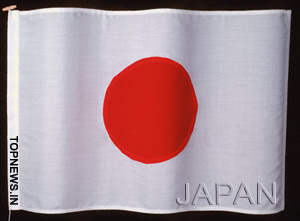Japan denies it plans to cut whale catch quota
 Tokyo - The Japanese government Thursday denied a report that it planned to reduce the catch quota in its "research whaling" this autumn.
Tokyo - The Japanese government Thursday denied a report that it planned to reduce the catch quota in its "research whaling" this autumn.
Earlier Thursday the Japanese daily Asahi Shimbun reported that Japan planned to reduce the whale kill quota in the Antarctic Ocean by about 20 per cent to 750 whales, which would cut the annual catch by 10 per cent.
But a spokesman at the Japan Whaling Section of the Fisheries Ministry denied the report, while adding that the ministry had made no decision on the issue.
"We don't know where the paper got the information," the spokesman, who asked not to be named, told Deutsche Presse-Agentur dpa.
The press report said it would be the first time that the Japanese government had reduced the quota since the so-called scientific research whaling began in 1987.
The report came amid mounting criticism against Japan's whaling from anti-whaling groups and slowing demand of whale meat.
Greenpeace, an international environmental organization, reacted to the Japanese press report, hailing it as the beginning of the end of Japanese whaling in the Antarctic.
Last whaling season, which runs from autumn through spring, Japan caught 551 whales for "research purposes" in the Antarctic, 60 per cent of its target catch for the region. Its current total annual target is 1,300 whales.
Japan's research whaling has prompted strong protests not only from anti-whaling groups but from Australia and European nations.
Earlier, Greenpeace claimed that the industry was unable to crew this year's programme with all-Japanese crews for the first time, the traditional ceremony seeing the fleet off from its base in Shimonoseki had been cancelled.
Furthermore Yushin, the flagship whale meat shop and restaurant in Asakusa, Tokyo, would close in 2010 due to ongoing financial problems.
Greenpeace said two of its Japanese activists, Junichi Sato and Toru Suzuki, had been held in custody for 145 days since exposing corruption in the industry and faced 10-year jail terms at their trial early next year for intercepting whale meat stolen by crew from the whaling factory ship Nisshin Maru.
Jun Hoshikawa, executive director of Greenpeace Japan, said, "The whale meat market has clearly collapsed and is unprofitable, and the stigma of scandal and corruption has made it an unattractive and less lucrative industry to work for."
"The whaling industry's days are numbered, and it's time for the Japanese taxpayer to demand the government stops subsidising this bankrupt programme." (dpa)